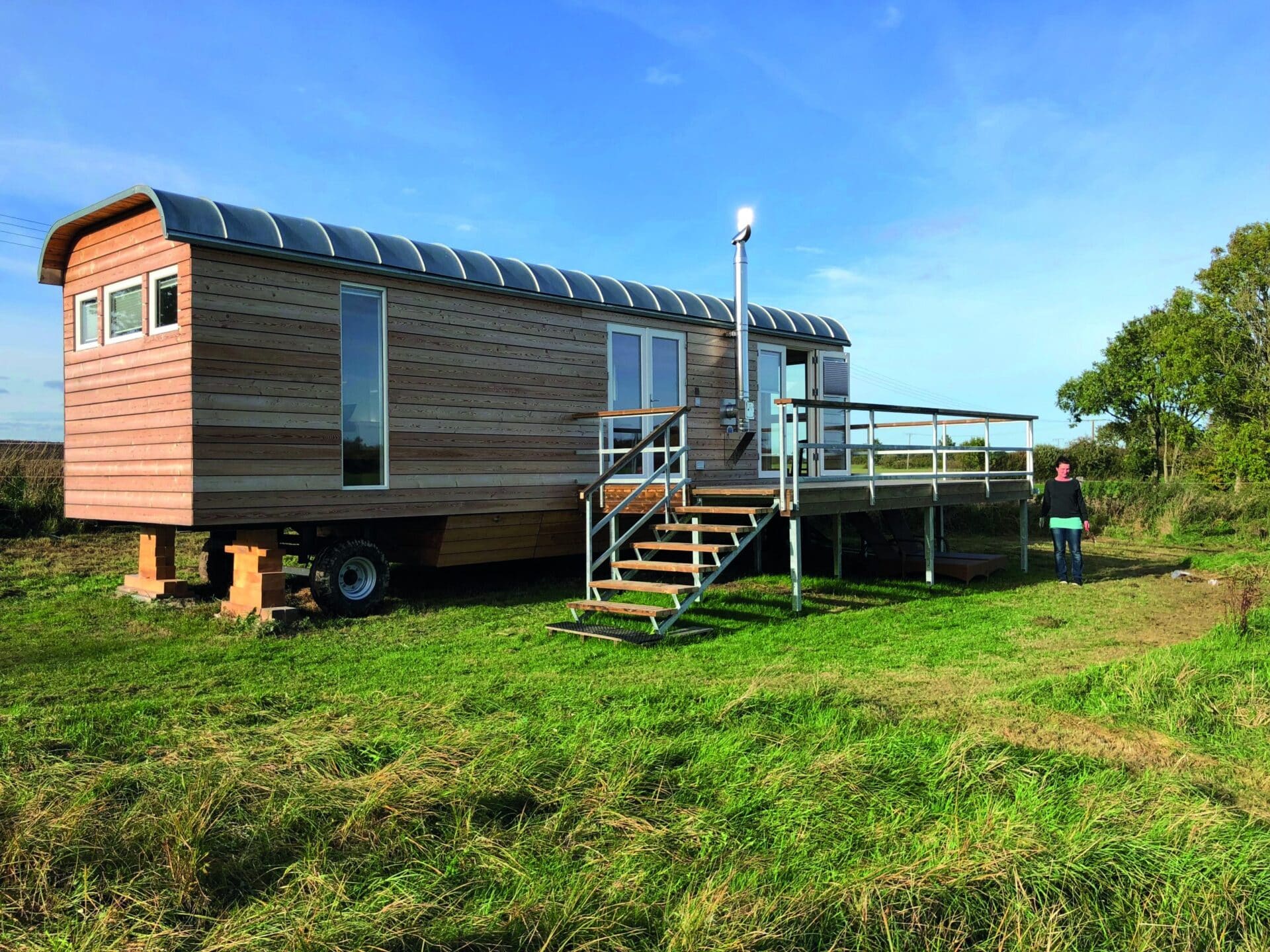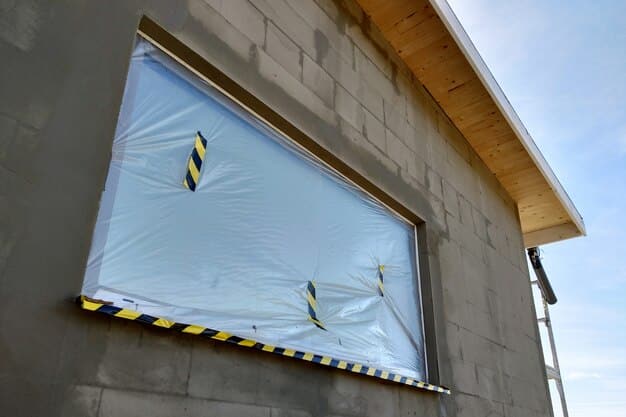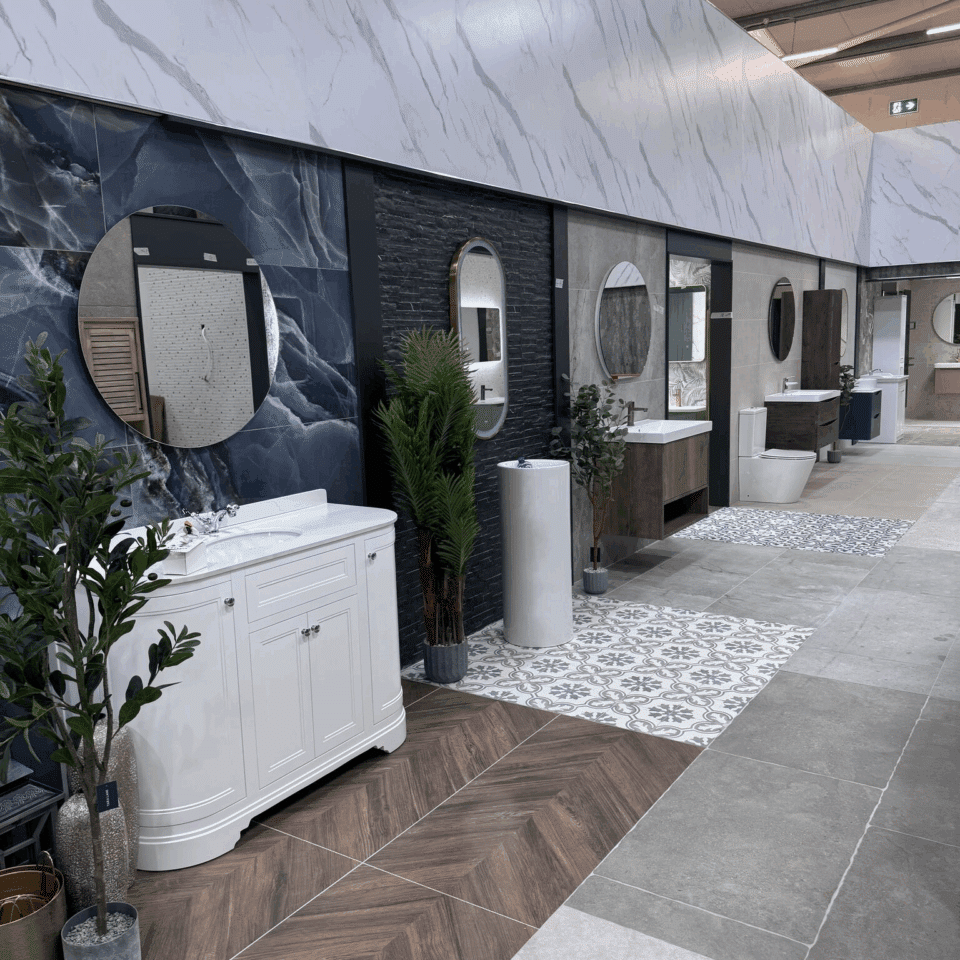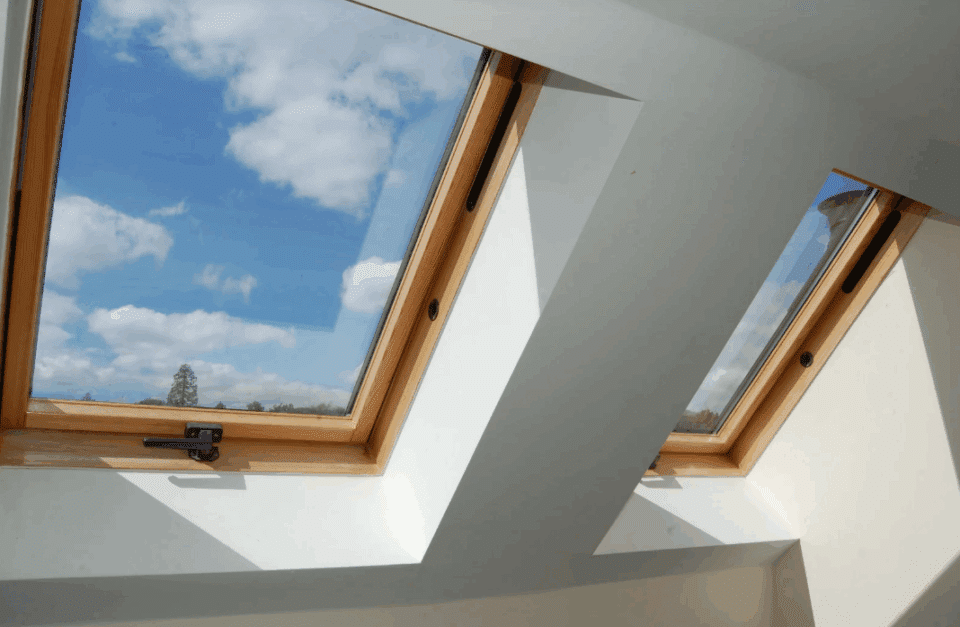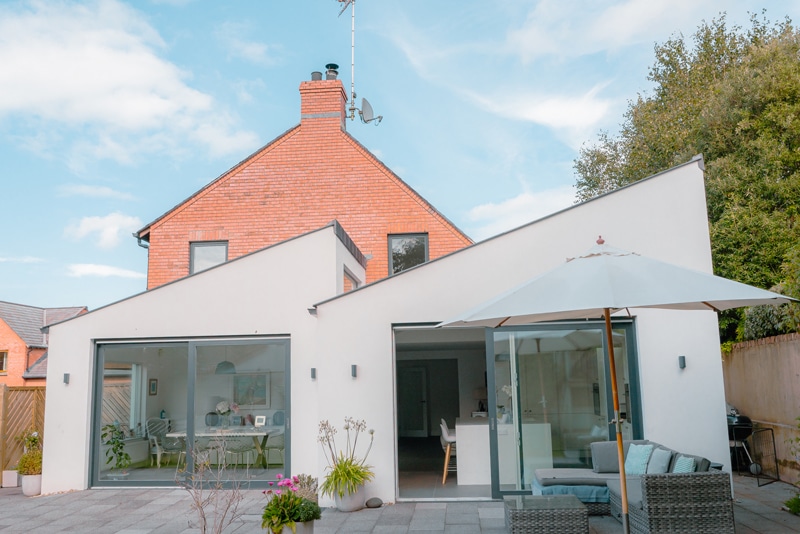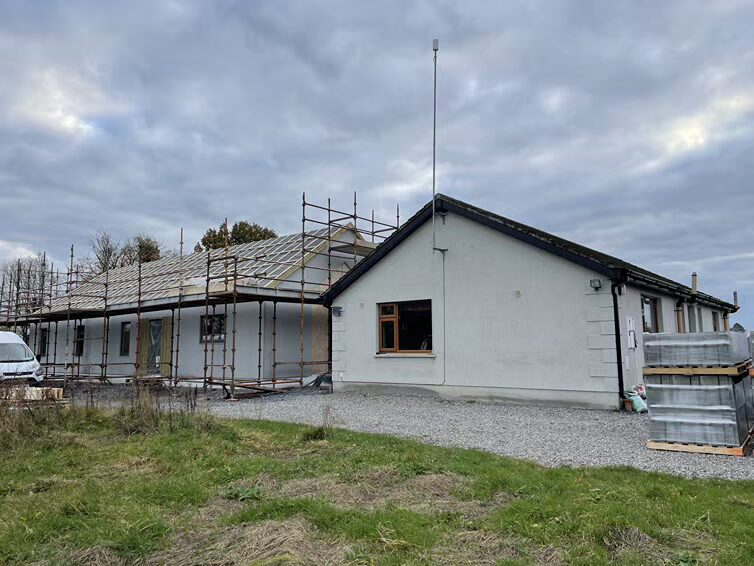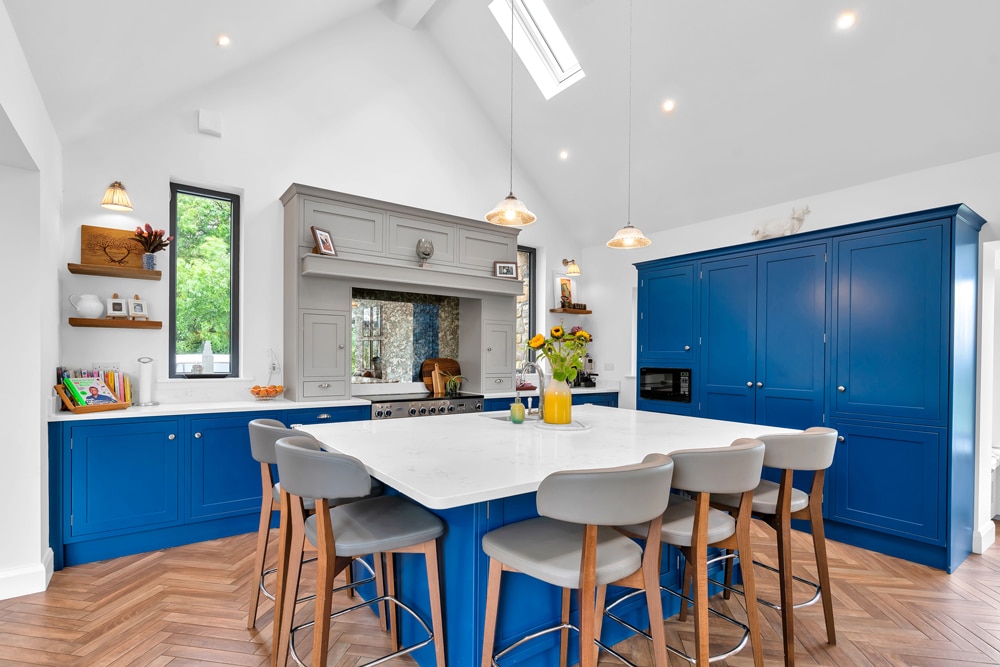Whether you’re building a totally new house or doing a substantial makeover you may need to think very carefully about how and where you live while it’s all happening.
Building a house from scratch or doing massive alterations to your existing home can be both exciting and terrifying at the same time. But unlike other major life projects it can also be exceptionally disruptive to your personal and family life. Unless you’re doing a seriously large renovation or extension to your home you’ll probably want or have to stay living in it while you build. You could also stay put if building your new house in your garden or on your land.
However, if you’re building an entirely new home in a new location there are accommodation issues to consider. And given that you could be working on your new build for two years, where and how you live could materially affect your finances for the whole project. As many people doing a self-build are watching the cash, this can become a serious issue.
There are three major options: stay living at home, rent somewhere close to the site or live in a temporary structure.
Stay living in your current home
At a time when there‘ll be so many changes and stresses, the stability of not moving house and staying put could be a real life-saver but in addition to the cost, you will need to factor in what the tax office will have to say about it.
Pros
- It’s what you’ve got and it’s familiar – and free if you don’t factor in a mortgage.
- Your family will probably like it best. And this is no small matter. Their lives will be altered by your focus on the new build and the levels of stress that go with it. Anything that keeps the family’s status quo intact can only help.
- In a booming property market your home could be rising in value all the time you’re building. This could help with finances.
- You may have room to create a comfortable ‘project office’ somewhere if you don’t already have a home office.
- If your site is some distance away, your travelling time between home and site can be a good unwinding opportunity so you don’t arrive home too stressed.
Cons
- Once the new house becomes nearhabitable you’ll be funding two homes at once (assuming you have borrowings on both properties).
- Not having the site under your nose makes it easier to lose touch with it and even to switch off for the odd day or two. Though you’ll need some time off it’ll usually be essential for you to be on site most days.
- You won’t be able to keep a watchful eye on the site’s security.
- You’ll have an added journey each day if you don’t live close to the new build. This could be very tiring at a time when you could already be exhausted and can lose you valuable building time on short winter days.
- You may need to give reassurances to your accountant and the tax office that the new place will, in fact, be your principle residence for tax purposes and not something you’re doing to sell on as a developer. Ambiguity about this could come back to bite you.
- In a falling property market you could lose money when you eventually come to sell your home and move into the new one. This could threaten your new build and must be factored in as a potential cost to the whole project from Day One.

Rent somewhere nearby
An in-between option between staying put in your existing house and living on site.
Pros
- Whether you rent a house, stay in a hotel or B&B, or have friends or family who’ll put you up, you’ll be freeing up the equity in your home, perhaps to buy your plot, or even to finance the whole new project. This gives peace of mind to many self-builders who like to know where they stand from the start on how much money is available.
- Can be done near your new build, which allows children to start at their new schools sooner or you or your partner to change jobs.
- It can be nice to start living in your new area, getting to know people and even, perhaps, becoming involved in your new community.
- You can invest the cash freed up by having sold your home and use the interest to pay the rent.
- If you rent an unfurnished house you’ll have a ‘free’ place to store your belongings til you move into your new home. Over two years this could save a lot on storage costs, which have become expensive.
- It is easier to convince the tax office that your intentions to live in your new build are genuine.
- Renting somewhere really close to the site will make life easier and could mean you’ll pop back and forth to your home office for management tasks and to see more of your family.
Cons
- All the rent you pay is money into someone else’s pocket – and out of your build budget. This could make a lengthy build (perhaps caused by unforeseen delays in building or planning) costly.
- You must take legal advice about your tenancy. Be certain that you can get out of your rental agreement should you run out of money or complete your build sooner than expected. The temptation is to sign up for longer than you need for fear of ending up on the street before your new house is ready. Take professional advice about how to structure this rental agreement to give you the best flexibility yet still keep your landlord happy.
- You won’t be able to keep a watchful eye on the site’s security.
- You may not be able to get the mortgage you need when you want it.

Live on the site in temporary accommodation
When thinking about what you’ll live in on site, give plenty of thought to exactly what you’ll need. And try to remain realistic throughout. Living in a caravan or mobile home isn’t at all like living in bricks and mortar. Manage everyone’s expectations right from the start. What could be tolerated if there were just two of you, might be inappropriate, or worse, for a young family, for example.
Pros
- It can be cheap, especially if you buy and sell the temporary accommodation well.
- You’re right on top of things, making it much more likely you’ll stay on time and on budget.
- You can keep an eye on everything from a security point of view.
- Site insurance premiums will be lower and you’ll be able to have a good security system, possibly one you can monitor remotely on your computer while you’re away from the site.
- You’ll be able to take deliveries out of normal working hours when the site would otherwise be closed. This can be a godsend and make the difference between getting that vital something you’re waiting for – and not. You can check goods as they arrive rather than having them dropped off then finding something’s wrong that involves sending them back, costing time, nerves and money.
- You’ll be able to ensure that high-value materials and fittings can be secured at once.
- You’ll be able to keep a watchful eye on who arrives and leaves, for your records. You should, of course, be keeping a site diary of your build anyway and the timings of such comings-and-goings are vital entries.
- You can start getting to know your neighbours and respond at once to any concerns they have. Nipping controversial issues in the bud is the very best way of avoiding friction with neighbours.
- The family can start getting used to living in the area, perhaps even going to new schools.
- You can go home for meals, get warm, sit down and relax for a moment. You’ll also be able to bounce ideas past your partner. After all, it’ll be their home too.
- Your children will learn a lot from the process.
- It can be an adventure for the whole family, provided the accommodation is comfortable enough.
Cons
- Because you will be living in it, you will need planning permission in both NI and ROI. And it makes sense to discuss things with any neighbours who could be affected. To be safe, get planning permission for your temporary accommodation at the same time as going for permission for the actual house.
- It’ll cost quite a lot to install all the services you’ll need to run a sensible family life for two years, including electricity, bottled gas, etc., and possibly somewhere to park your car. With brilliant planning you may be able to keep duplication of these services to a minimum but it’ll be hard. When applying for an electricity supply you’ll be asked to show your planning permission documents.
- You’re never off the job. This can be depressing when things are going badly or if the place is a mud-bath. To this end, I suggest people set up some sort of ‘escape’ retreat they can go to when the going gets exceptionally tough and they just need to get away. Even the most idyllic adventure goes sour on occasions. You must be able to escape for a few days.
- Friends and family will think you’ve lost your senses!
- No caravan or mobile home is ever as good as living in bricks and mortar. Building sites are also dangerous, especially with children.
- Plan well ahead for your personal access. Trucks and construction plant all take up valuable space. Some of this could make your temporary home inaccessible from time to time. Plan this out, right from the start, including whether/when you’ll be getting in the way of the construction.
- You’ll have to spend money storing all your worldly goods while you build. This can be expensive. If you have good friends or family that could help, you could save money on this. Also, rest assured that the very things you’ll want as you live in your temporary home will turn out to be in boxes.

